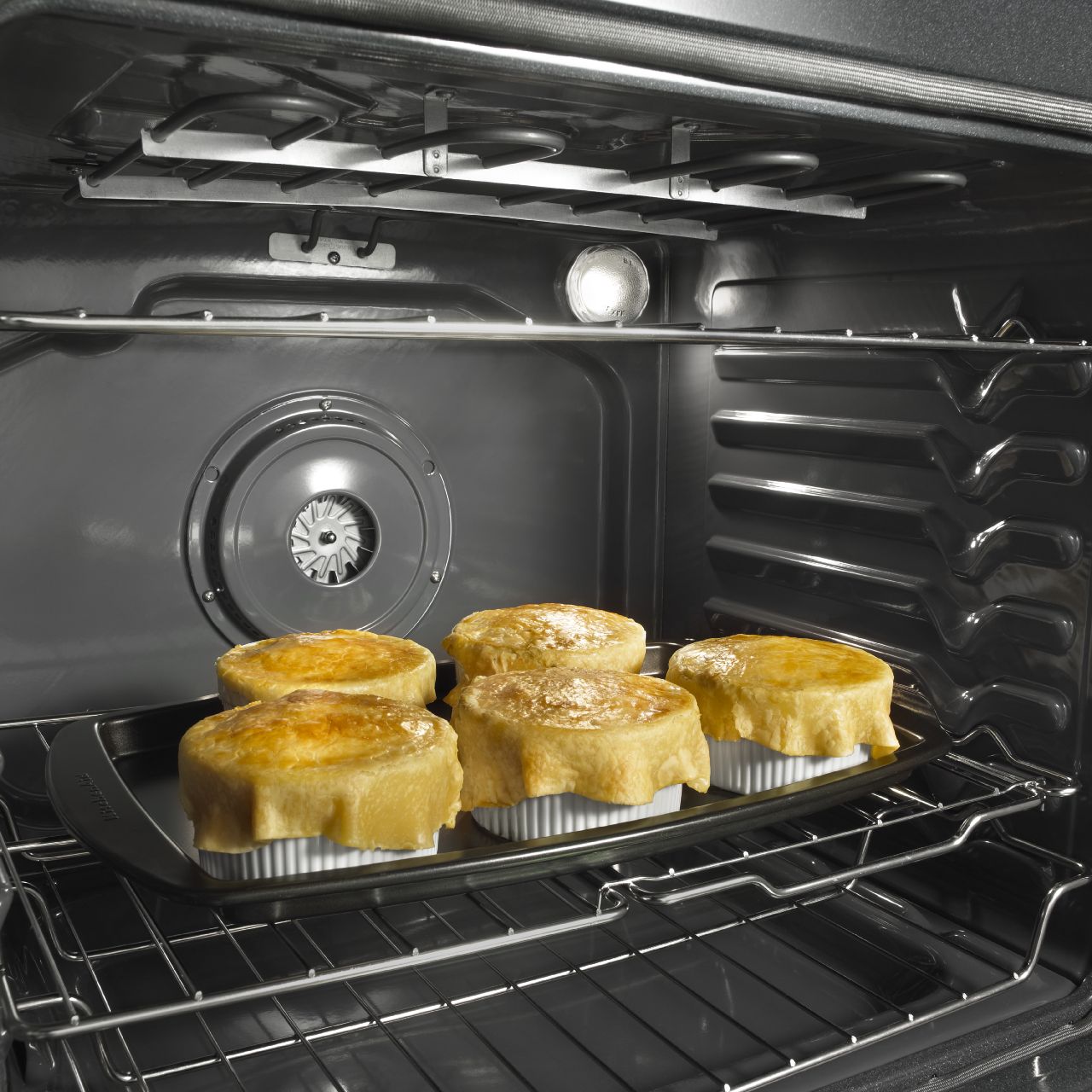A GE washer turning on by itself often indicates a malfunction or a need for a reset. This unexpected behavior can be troubling for users.
Dealing with appliances that seem to have a mind of their own can be quite perplexing. Imagine you’re enjoying a peaceful evening, and suddenly, your GE washer decides it’s time to start a cycle without any human command. This scenario isn’t just puzzling; it’s a sign that something’s amiss with your appliance.
Modern GE washers are equipped with advanced features and electronics that, while designed to make our lives easier, can sometimes behave unpredictably due to glitches, power surges, or even simple programming errors. Identifying the root cause is crucial to ensure your washer operates efficiently and safely. This guide aims to shed light on why your GE washer might turn on by itself and how you can address this issue, restoring normalcy and peace of mind.
Introduction To Ge Washer Phantom Operations
Imagine walking into your laundry room to find your GE washer humming along, yet no one turned it on. This eerie behavior has sparked conversations among homeowners and tech enthusiasts alike. Nicknamed ‘Phantom Operations,’ these self-starting cycles can be both confusing and concerning. Let’s unravel the mystery behind these ghostly goings-on.
The Mystery Of Self-starting Appliances
Appliances turning on by themselves sound like a scene from a sci-fi movie. Yet, it’s a real issue for some. Is it a glitch, or is there a logical explanation? Owners report washers beginning cycles unbidden, leading to wasted energy and potential safety concerns.
Why Focus On Ge Washers?
GE washers are popular and trusted in many households. Their advanced features and reliable performance make them a top choice. But when a GE washer starts on its own, it raises questions. Is it a feature, a fault, or something else? Understanding this can help ensure your appliance runs only when it should.
This section will explore possible causes and solutions for your GE washer’s unexpected startup. From simple fixes to more complex technical advice, we’ll cover all you need to know to tackle phantom operations head-on.
Common Causes For Spontaneous Starts
Is your GE washer starting on its own? It can be puzzling when appliances act unpredictably. Let’s explore common reasons why this might happen.
Faulty Electrical Components
Electrical issues often cause washers to start by themselves. These are some faulty parts:
- Control board: The brain of the washer.
- Wiring: Frayed or damaged wires can send incorrect signals.
- Timer: If faulty, it might activate the washer.
It’s best to get these parts checked by a professional.
Software Glitches
Like computers, washers have software. Glitches can cause unexpected starts. Resetting the washer might fix this. If not, a technician can help.
| Step | Action |
|---|---|
| 1 | Unplug the washer |
| 2 | Wait for one minute |
| 3 | Plug it back in |
| 4 | Run a test cycle |
Remember, fixing software issues yourself can be tricky.
Initial Diagnostic Steps
Is your GE washer turning on by itself? This peculiar issue requires some initial diagnostic steps to pinpoint the cause. Let’s explore how you can safely and effectively diagnose this problem. Follow these steps to understand your washer’s unexpected behavior.
Safety First: Unplugging Your Washer
Before troubleshooting, safety comes first. Always disconnect your washer from its power source. This prevents accidents and protects you while you inspect the appliance.
Observing The Pattern Of Behavior
Next, observe how the washer behaves. Does it turn on at random times or during specific conditions? Note these patterns down. They can offer clues to the underlying issue. Does the washer start a cycle, or does it simply power on? These details matter.
- Record the times when the washer turns on.
- Note any displayed error codes.
- Check if certain buttons are more sensitive or stuck.
Understanding these patterns will guide the next steps in fixing your washer. It also helps technicians if professional repair is needed.
Troubleshooting Electrical Issues
Home appliances like GE washers make life easier. But when they turn on alone, it’s time for action. This section dives into how to find and fix electrical issues. Keep safety first. Unplug the washer before starting.
Inspecting Power Cords And Outlets
Begin with the basics. Power cords and outlets are often the culprits. Look for damage, wear, or loose connections.
- Check the cord for frays or cuts.
- Examine the outlet for burn marks or odd smells.
- Ensure the plug fits snugly in the outlet.
A damaged cord or faulty outlet needs a professional’s touch. Call an electrician for help.
Testing For Electrical Shorts
Electrical shorts in your washer can cause unexpected startups. Testing for shorts requires caution. Use a multimeter for safe and accurate testing.
- Set the multimeter to the resistance setting.
- Test each cord for continuity.
- Look for readings that indicate a short.
A consistent reading means a potential short. Contact a technician for repairs.
Addressing Software And Control Panel Malfunctions
Is your GE washer turning on by itself? It’s not haunted; it might be a glitch. A washer should only work when you want it to. When it acts on its own, it’s time for a fix. Let’s tackle software and control panel issues that can cause this spooky behavior. Simple steps can get your washer back in line.
Resetting The Washer’s System
Resetting can solve many electronic problems. It’s like giving your washer a fresh start. Here’s how:
- Unplug the washer from the power source.
- Wait for at least one minute.
- Plug the machine back in.
- Open and close the door 6 times in 12 seconds.
This can reboot the system. Now, your washer should follow your commands, not its own.
Firmware Updates And Fixes
Just like phones, washers need updates too. Firmware keeps your machine running smoothly. If it’s outdated, weird things can happen. Check for updates:
- Consult the GE website for your model.
- Follow the instructions for firmware updates.
With the latest firmware, your washer won’t surprise you anymore.

Credit: fredsappliance.com
Professional Repair Vs. Diy
Experiencing a GE washer that powers on alone is perplexing. This issue might invite a debate: should you call a pro or attempt a DIY fix? Understanding the pros and cons of each approach is crucial.
When To Call A Technician
Complex issues often require a technician. Signs include:
- Error codes beyond the manual’s help
- Internal part failures like motor or motherboard issues
- Electrical problems that pose safety risks
Technicians bring expertise and special tools. They ensure your washer’s longevity and performance.
Diy Repairs: Pros And Cons
DIY fixes can be tempting. They offer benefits like:
| Pros | Cons |
|---|---|
| Cost savings | Potential for mistakes |
| Immediate action | Time-consuming |
| Learning experience | Risk of further damage |
Assess your skills and comfort level with appliances before starting a DIY repair. Simple fixes like unclogging a filter are manageable. More complex issues warrant professional attention.
Preventive Measures For Future
Dealing with a GE washer that turns on by itself can be puzzling. To prevent this issue from reoccurring, consider these future preventive measures. They keep your appliance in top shape and reduce the risk of unexpected behavior.
Routine Maintenance Tips
Regular upkeep is key for your washer’s longevity and reliability. Follow these tips:
- Clean the washer monthly to prevent residue buildup.
- Inspect and replace hoses every five years or as needed.
- Level the washer to avoid imbalance and undue stress on components.
- Use the right amount of detergent to prevent over-sudsing and sensor issues.
Upgrading Outdated Components
Old parts can cause your washer to act up. Consider these upgrades:
| Component | Signs it Needs Replacement | Benefit of Upgrading |
|---|---|---|
| Control Board | Erratic behavior, unexpected starts | Improved performance, new features |
| Door Latch | Door won’t stay closed | Enhanced safety, prevents self-starting |
| Water Inlet Valve | Leaking, water issues | Better water management, efficiency |
Conclusion: Restoring Peace Of Mind
Experiencing a GE washer that powers on alone can be unsettling. The ‘Conclusion: Restoring Peace of Mind’ part sums up the steps to solve this issue. A functioning washer brings comfort back to your home.
Summarizing Troubleshooting Success
Let’s recap the effective strategies:
- Check the control panel for stuck buttons.
- Reset the washer by unplugging it for a while.
- Review the user manual for specific reset instructions.
- Contact a professional if problems persist.
These steps typically fix the self-starting issue, restoring your washer’s normal function.
The Importance Of Staying Vigilant
Even after a fix, keep an eye on your washer. Regular checks prevent future surprises. Quick actions at the first sign of trouble save time and money. Your peace of mind is worth the effort.

Credit: www.facebook.com
Frequently Asked Questions
How Do I Reset My Ge Washer Control Board?
To reset your GE washer control board, unplug the washer for 1 minute. Next, reconnect the power. Press the “Start/Pause” button for 5 seconds. This process should reset the control board and resolve any glitches. Always refer to your manual for model-specific instructions.
How Do You Do A Hard Reset On A Ge Washer?
To perform a hard reset on a GE washer, unplug the machine for one minute, then plug it back in and lift and lower the lid six times within a 12-second period.
Why Does My Ge Washer Start And Then Stop?
A GE washer may start then stop due to an unbalanced load, a faulty lid switch, or electrical issues. Ensure the load is evenly distributed, check the lid switch for functionality, and inspect for any loose electrical connections.
Why Is My Washing Machine Moving On Its Own?
Your washing machine may move due to unbalanced loads or uneven flooring. Ensure loads are evenly distributed and check if the appliance sits level on the ground. Adjust its feet for stability.
Why Does My Ge Washer Start By Itself?
GE washers can initiate a cycle without input due to faulty electronic controls, a malfunctioning timer, or wiring issues. Regular maintenance checks can help prevent this.
Conclusion
Having a GE washer that activates on its own can be perplexing. We’ve covered potential causes and solutions to help ensure your appliance operates smoothly. Remember to consult a professional for complex issues. Maintenance and timely repairs will keep unexpected startups at bay, ensuring your GE washer remains a reliable household ally.





